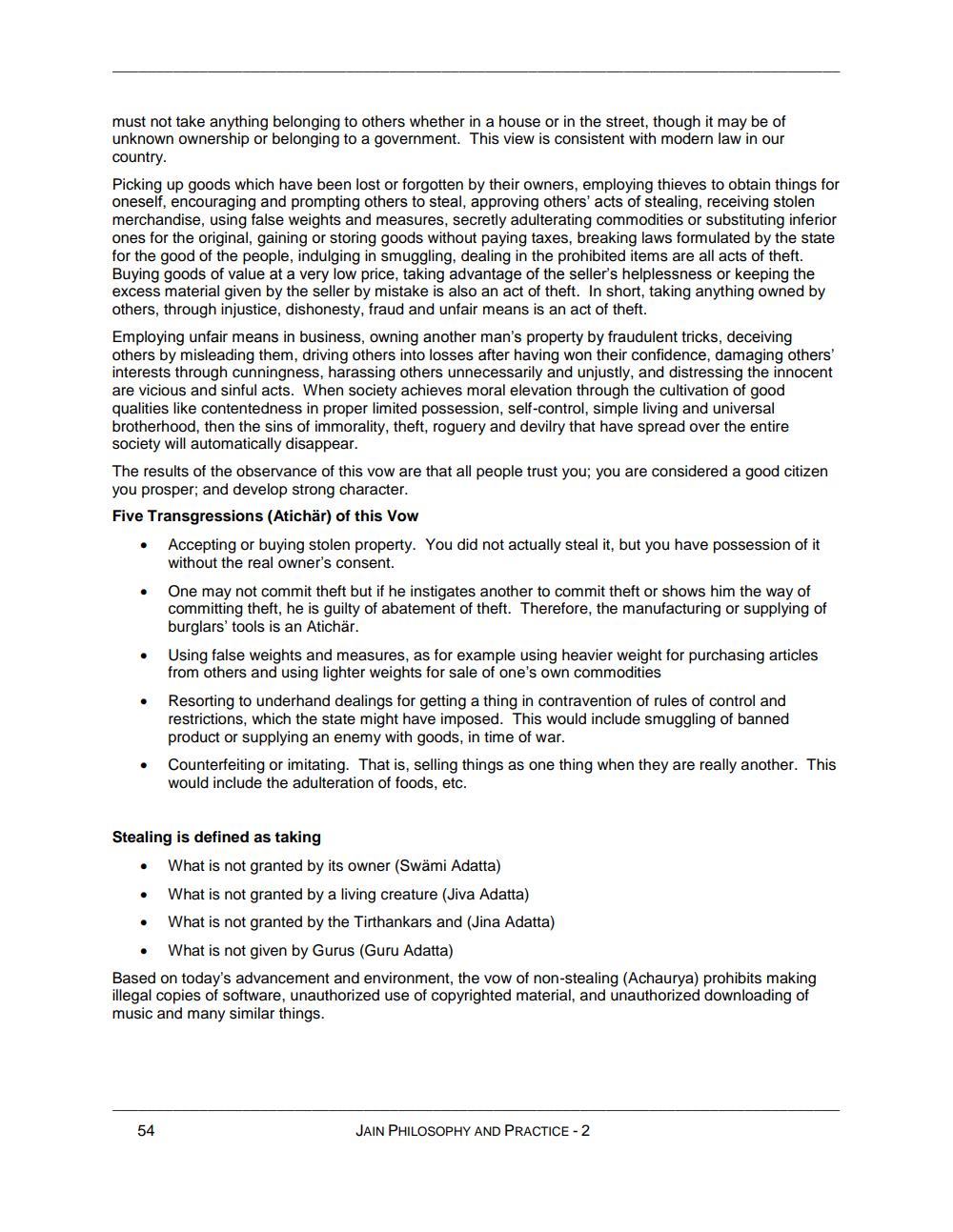________________
must not take anything belonging to others whether in a house or in the street, though it may be of unknown ownership or belonging to a government. This view is consistent with modern law in our country. Picking up goods which have been lost or forgotten by their owners, employing thieves to obtain things for oneself, encouraging and prompting others to steal, approving others' acts of stealing, receiving stolen merchandise, using false weights and measures, secretly adulterating commodities or substituting inferior ones for the original, gaining or storing goods without paying taxes, breaking laws formulated by the state for the good of the people, indulging in smuggling, dealing in the prohibited items are all acts of theft. Buying goods of value at a very low price, taking advantage of the seller's helplessness or keeping the excess material given by the seller by mistake is also an act of theft. In short, taking anything owned by others, through injustice, dishonesty, fraud and unfair means is an act of theft. Employing unfair means in business, owning another man's property by fraudulent tricks, deceiving others by misleading them, driving others into losses after having won their confidence, damaging others' interests through cunningness, harassing others unnecessarily and unjustly, and distressing the innocent are vicious and sinful acts. When society achieves moral elevation through the cultivation of good qualities like contentedness in proper limited possession, self-control, simple living and universal brotherhood, then the sins of immorality, theft, roguery and devilry that have spread over the entire society will automatically disappear. The results of the observance of this vow are that all people trust you; you are considered a good citizen you prosper; and develop strong character. Five Transgressions (Atichär) of this Vow
Accepting or buying stolen property. You did not actually steal it, but you have possession of it without the real owner's consent. One may not commit theft but if he instigates another to commit theft or shows him the way of committing theft, he is guilty of abatement of theft. Therefore, the manufacturing or supplying of burglars' tools is an Atichär. Using false weights and measures, as for example using heavier weight for purchasing articles from others and using lighter weights for sale of one's own commodities Resorting to underhand dealings for getting a thing in contravention of rules of control and restrictions, which the state might have imposed. This would include smuggling of banned product or supplying an enemy with goods, in time of war. Counterfeiting or imitating. That is, selling things as one thing when they are really another. This would include the adulteration of foods, etc.
Stealing is defined as taking
• What is not granted by its owner (Swami Adatta)
What is not granted by a living creature (Jiva Adatta) • What is not granted by the Tirthankars and (Jina Adatta)
What is not given by Gurus (Guru Adatta) Based on today's advancement and environment, the vow of non-stealing (Achaurya) prohibits making illegal copies of software, unauthorized use of copyrighted material, and unauthorized downloading of music and many similar things.
JAIN PHILOSOPHY AND PRACTICE -2




